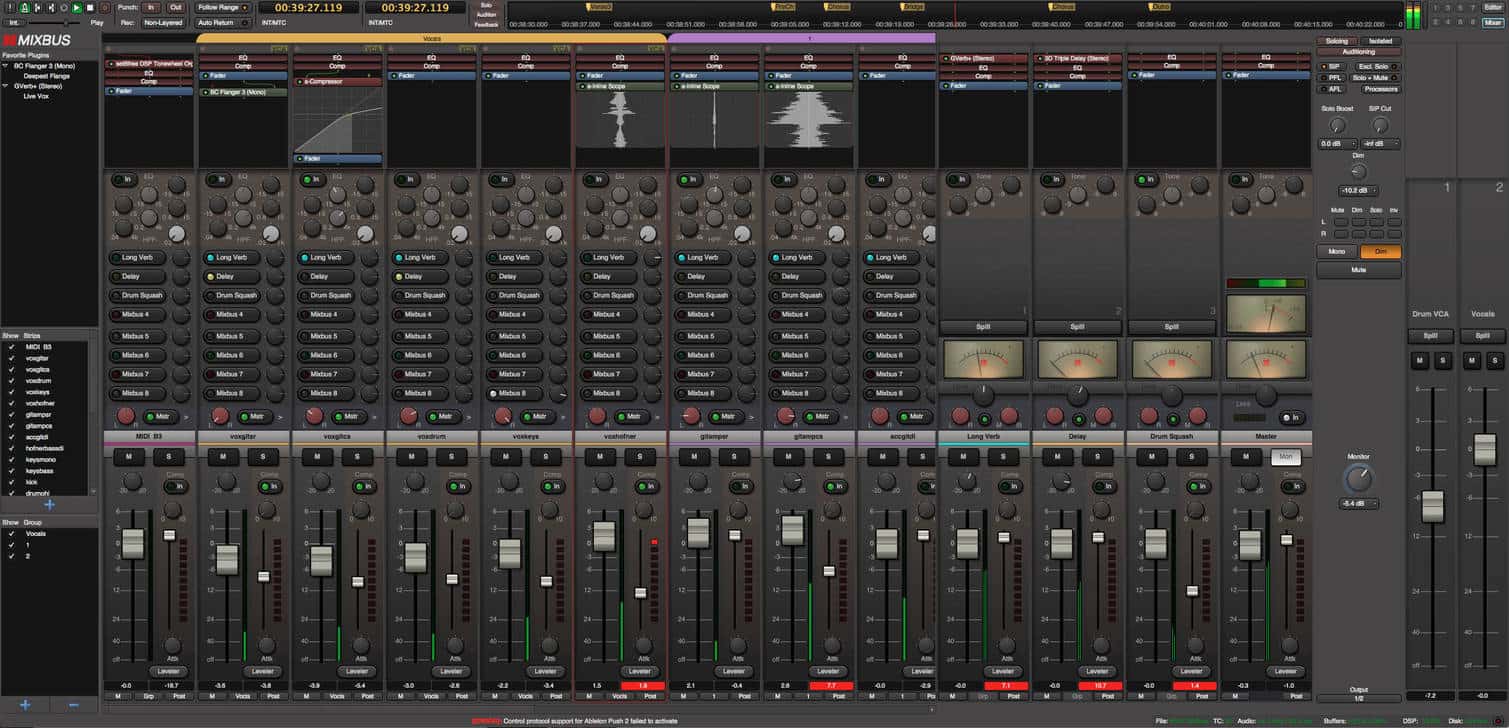
I imagined either routing the outputs of my busses from Reaper into Mixbus, or exporting stems from my mix into Mixbus for the tone it gives. The two reasons for this are because 1) I'm already used to mixing in Reaper, and 2) Mixbus is still short of some features that I would want in a full-time DAW (I'll explain more below). My plan in buying Mixbus was mostly to use it as a final touch for my mixes. Limiter mode is of course a hard compression that tames anything above its threshold coming its way. The Compressor is your standard compression, and can give a nice strong tone to the channel.

Leveler mode is designed for evening out the volume of a channel, for example, normalizing between soft and loud parts of a vocal. The compressor has 3 flavors: Leveler, Compressor, or Limiter. The EQ is designed to give a broad Q when cutting or boosting very lightly, but once you turn the gain towards an extreme, the results is a thin but deep cut or boost. Harrison's experience in the analog console world has informed them of the optimal settings and configurations of each effect in order to give the maximum benefit with just a few knobs' worth of turning. That means that the EQ, compressor, and tape saturation all have Harrison's trademark sound on them. Embedded into each of the mixer's features is Harrison's DSP, derived from their own consoles. On each of the busses, as well as the master buss, is tape saturation. Channels can be routed to up to 8 busses, which ultimately combines into the master fader. Just like a sound board, there is an EQ and compressor per channel, but there is also room for your favorite plugins to be put in as inserts. Needless to say, a nice wide screen helps if you have a lot of channels! The idea is to have one knob control a single function, and to have everything you need to make a mix on one screen. The mixer view is designed to look just like a recording console. Mixbus's approach is directly derived from what they've been making for years and years: consoles. Mixbus's mixer view - looks like a sound board! Mixbus is their first step into the DAW world, and while I must say there are some things lacking, they have made the core of their product in line with the sound they've created through their analog consoles. Since the digital revolution in recorded audio, they've been transitioning into the digital domain, making their boards with digital controls whilst keeping a good sounding analog frontend.

Harrison has been around since the 70s, making high end boards for film and audio. Seeing as mixing is not my day job and $40 puts Mixbus at one of the cheapest prices for a console emulator plugin (though it is invariably more than that), I decided to dive in and give it a try. Some folks have said it's a no-brainer buy, while others touted their own favorite console emulation plugins as better sounding.

Though I already use Reaper as my primary DAW, I was attracted by the potential for Mixbus to put an analog console feel to my mixes, as well as the price point. I recently bought a copy of Harrison's Mixbus DAW, via a sale they are having at DontCrack.


 0 kommentar(er)
0 kommentar(er)
